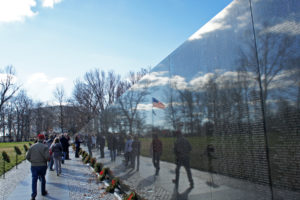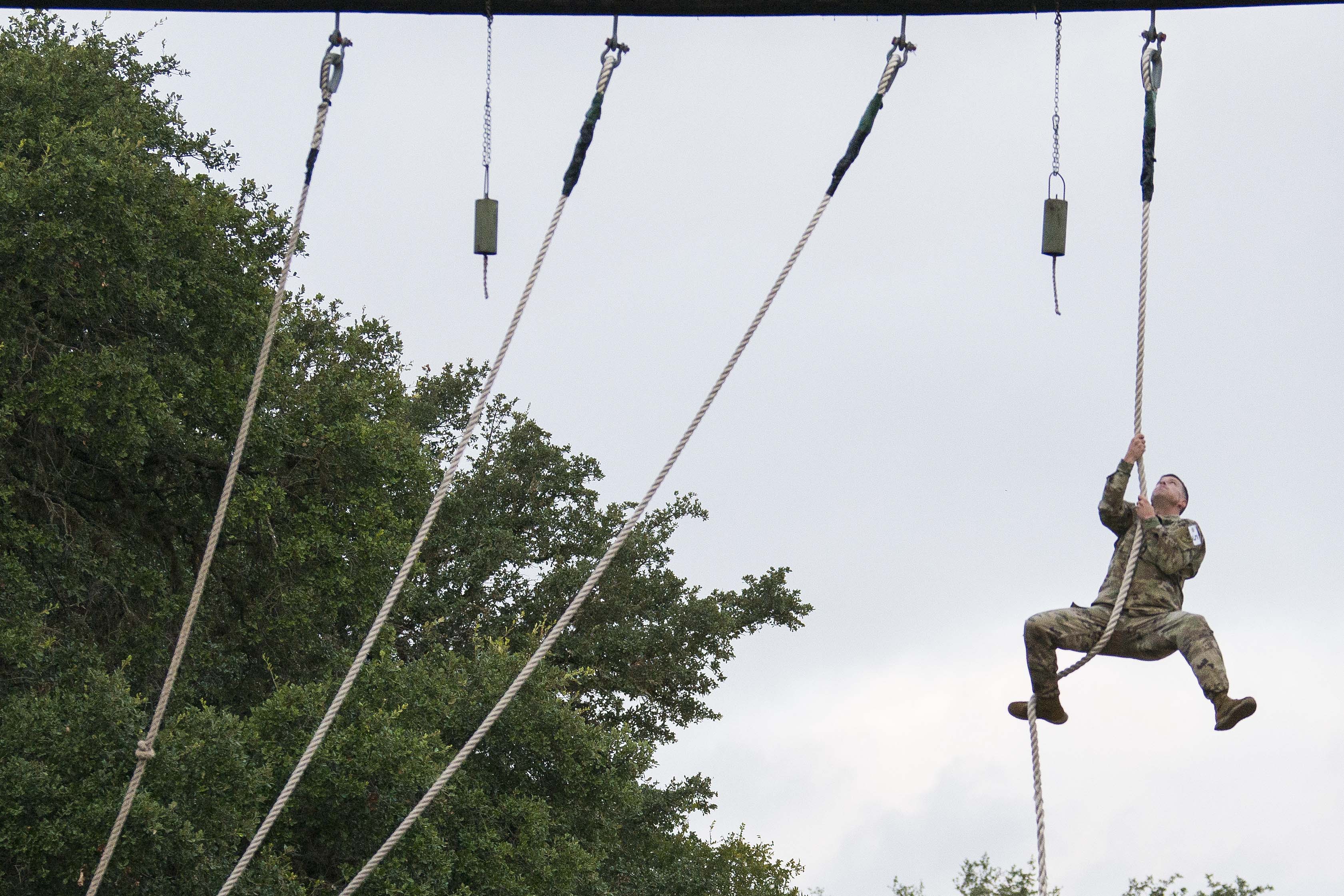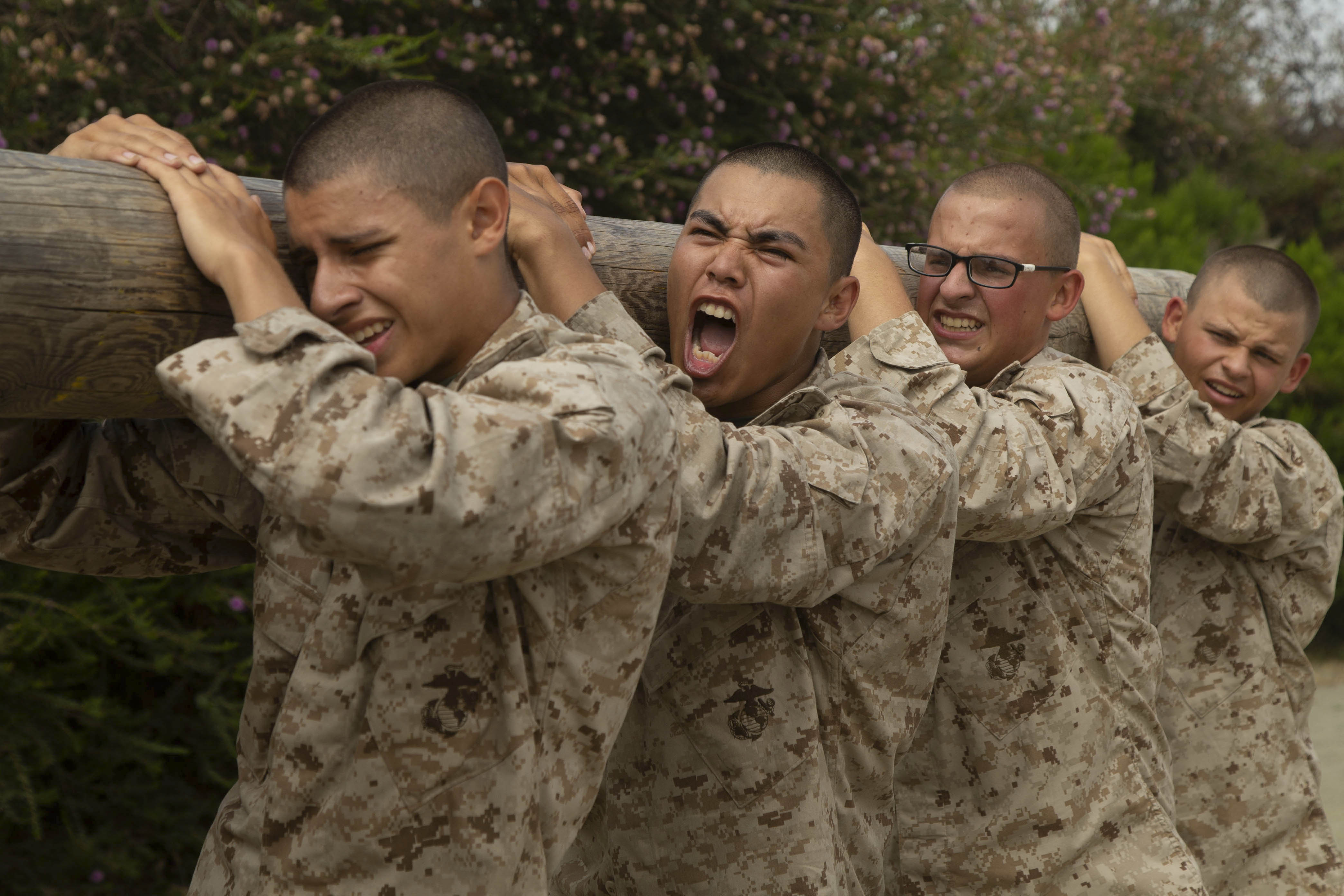
Vietnam Veterans Memorial, National Mall
Get any three veterans who have deployed together in a room, and you’re in for a lively conversation. Ask who is the strongest, fastest, and smartest, and you will get a variety of responses. Often, each will argue that they should be considered for the title.
Ask which of them is the bravest, the most heroic, and our three veterans will point the at the other two, but not themselves. I will be the first to tell you that I’m no one special, that all I ever did was take care of my Soldiers, take care of my mission, and do the best that I could.
Talk to any veteran about their time in combat, and you will eventually get to the point where they say, “well, as bad as I had it, at least I wasn’t in…” At least I wasn’t in the Korengal. Talk to veterans who were in the Korengal, however, and they say, “at least I wasn’t at Keating.” I would imagine that guys from Keating would say, “at least I wasn’t in Ramadi,” veterans of Ramadi saying, “at least I wasn’t in Fallujah,’ veterans of Fallujah saying, “at least I wasn’t in the invasion,” on and on, with each veteran knowing that someone, somewhere, had it worse than they did. OIF/OEF veterans point to the Vietnam days, saying, “those guys had it rough”, Vietnam guys point to Korea, back through American military history. The fact that someone else had it worse made it mean that that other vet was more of a hero than they were, were more worthy of honor and respect than they were. In many cases, that’s true.
At Fort Bragg, there is an annual event called All American Week. It’s a huge reunion for former members of the 82nd Airborne Division, and there are events throughout the week. After a jump one day, a group of my Soldiers and I were meeting with some former paratroopers, and one of the old gentlemen asked one of my Soldiers, “how many jumps do you have, son?” My guy, proud as only an Airborne Soldier can be, puffs up his chest and says, “Nine!” The old paratrooper says, “well, you sure have me beat, I only have three.” “Three? That’s it?” “Yeah, just the three…Normandy, Holland, and Sicily.” It took my guy a minute to realize that he was talking about THE Normandy, Holland and Sicily, not just the drop zones on Bragg. In my book, that old paratrooper is a hero…but I’m sure he doesn’t think so.
The fact is, simply serving in the military is a rare thing. In 2010, the U.S. Census indicates that there are 21.8 million veterans living in America. That same census counted 308.7 million Americans; that comes to approximately 7%. If we accept the definition of “special” in it’s adjective form as something that is better, greater, or otherwise different from the usual, this statistic certainly fits that criteria. Even as I write this, however, something within me balks at the idea of describing myself as “better” or “greater”.
“We who have come back, by the aid of many lucky chances or miracles – whatever one may choose to call them – we know: the best of us did not return.”- Viktor Frankl
When it comes to the real stuff, the important stuff, rarely will you get a veteran who has actually experienced combat describe themselves as a hero. It’s not that they despise that designation…each will tell you that they know true heroes…but each will deny that they themselves deserve that designation. They will tell of one of their buddies who saved their life. They will tell of some squad leader who made a quick decision that resulted in success rather than failure. They will tell you that the true hero is the one that didn’t make it back. Viktor Frankl, in Man’s Search for Meaning, described concentration camp survivors in this way: “We who have come back, by the aid of many lucky chances or miracles – whatever one may choose to call them – we know: the best of us did not return.” When I read those words, I understood them, in the most fundamental way that one can when someone puts into words the unspoken feeling inside them.
I once knew an NCO who had the opportunity to play an extra on the film, We Were Soldiers. We didn’t really believe him, until we all watched the movie and he paused it right at the scene where you could see his face…15 miliseconds of fame, and all that. He told a pretty cool story, though.
Lieutenant General Hal Moore was on the set as an advisor, and they were filming the scene where Mel Gibson is speaking to the troops before they shipped off to Vietnam. As they were watching the speech and Gibson said, “I will be the first to set foot on the field, and I will be the last to step off, and I will leave no one behind…dead or alive, we will all come home together,” my buddy said he looked over at Hal Moore and saw tears streaming down his face. Later, a group of them were listening to him talk, and Lt. Gen. Moore said that those words affected him deeply, because there were Soldiers left behind. Not in the Ia Drang campaign, but in Vietnam…and they were often the best of them. Lt. Gen. Moore would claim that he’s no hero.
If you’re a veteran, I get it, no amount of convincing is going to make you feel like you did anything special. You’re going to avoid claiming any service connected disability because “others deserve it more than I do.” You’re going to downplay your accomplishments because you didn’t do what you did for the glory, and you certainly didn’t do it for the pay. When anyone asks, you give them the old Joe Friday line from Dragnet: “Just doing my job, Ma’am.”
The truth is, though, although you may not be a hero, and you may not be special, you have done some pretty heroic and special things. If you’re not a veteran, maybe that will be helpful to remember as well.



